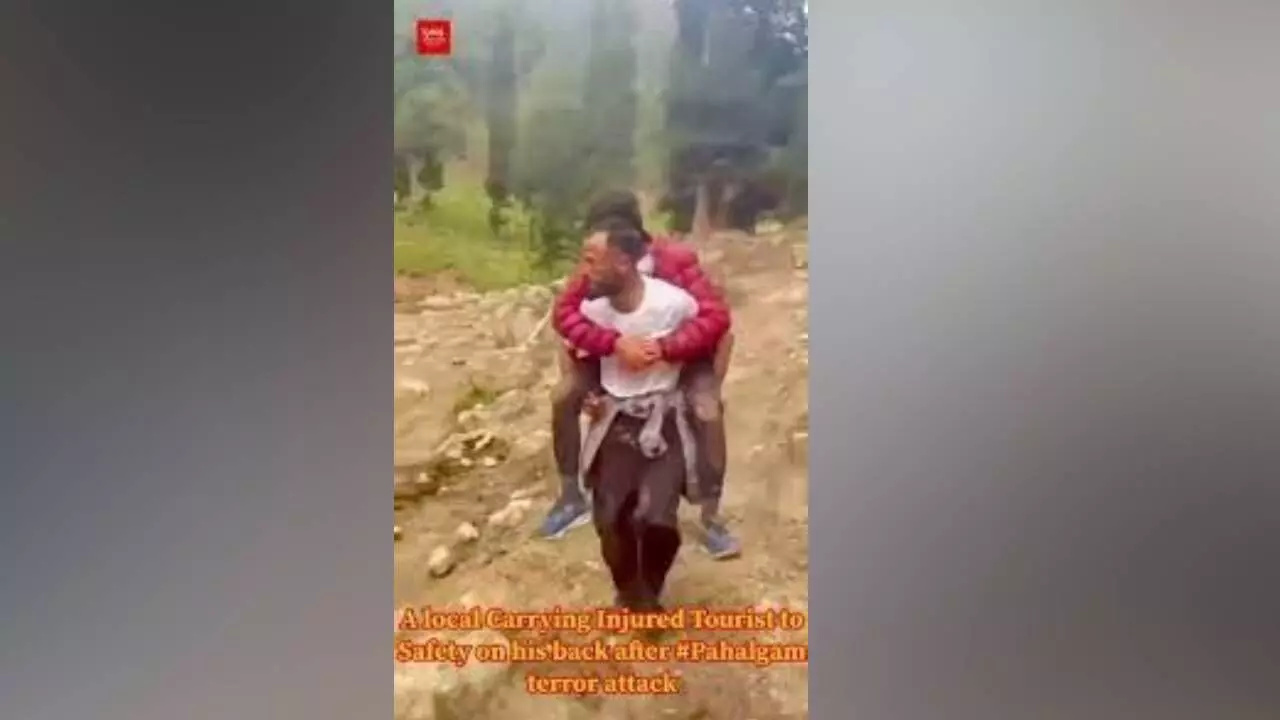Pahalgam attack brings Kashmiris back to cultural roots
Public response indicates a change — a return to Kashmiriyat that rejects violence and embraces religious harmony and syncretism
image for illustrative purpose

The Pahalgam terror attack exposes the fragility of the Indian state. This is not the first time such an incident occurred during Prime Minister Modi's decade-long rule. Modi’s strong, iron-willed leader image has taken a significant hit. People have witnessed greater chaos and a total absence of state authority in Manipur, but the impact of Pahalgam will be broader. It has reopened buried issues we would have preferred to remain dormant.
Manipur experienced a civil war in which the provincial government was a party. Although the situation appears to be under control, it is heading toward a negative trajectory. The Meitei and Kuki communities have declared a permanent severance of relations. Despite its severity, Manipur’s affairs have limited impact on domestic or global politics. This is not the case with Jammu and Kashmir. Every incident in the region significantly affects our equations with neighboring countries and the communal situation in India. It is no coincidence that terrorists asked their targets to reveal their religious identity. They sought to reiterate their religious fanaticism and reassert the ideology of Islamic fundamentalism. However, they failed to evoke the religious sentiments they intended. The response of the local people was unexpected. Kashmiris unequivocally condemned the attack and stood against it. Their reaction was spontaneous and displayed unprecedented camaraderie toward Hindu tourists. Had they not responded positively, more tourists would have died or been injured. Poor people with limited resources provided everything at their disposal—water, food, transportation, and medical assistance—to tourists in need.
Though the media underplayed the state’s failure to fulfill its responsibility of providing necessary help to victims, the incident revealed that the central government has not created a dependable state machinery in a sensitive region like Kashmir. The media also downplayed the spirit with which Kashmiris supported tourists, which reflects a revival of Kashmiri culture that has attracted people for decades. Unlike their neighbors in Punjab and Afghanistan, Kashmiris have historically avoided war and fanaticism. Their fight for autonomy pushed them toward Pakistan, which exploited them against India. A wave of Islamic fundamentalism briefly swept the region, but Kashmiriyat remained a formidable force throughout. The failure of the Jammu & Kashmir Liberation Front (JKLF) to achieve results weakened its position. The JKLF also failed to sideline fundamentalist groups operating from Pakistan. Seeking Pakistan’s help came at a cost, resulting in ideological dilution and the weakening of organizations. Pakistan did not support autonomy in Kashmir; it only spoke in these terms out of necessity, as only a small section wanted to merge with Pakistan. However, Pakistani support strengthened fundamentalist elements, who ultimately gained ground. People shouted pro-Pakistan slogans, and alienation from the Indian establishment drove them toward forces aligned with Pakistan.
The people’s response to the Pahalgam attack indicates a change—a return to Kashmiriyat. Kashmiriyat rejects violence and embraces religious harmony and syncretism, where identity is not solely based on religion. People observed a day-long bandh to protest the terror attack and raised slogans of Hindu-Muslim unity—a significant development.
The Modi government’s reaction is disappointing, showing an urgency to downplay the security lapse behind the incident. The state machinery has again demonstrated its inability to prevent such attacks, contradicting claims that peace has been restored. The government’s stubbornness prevents it from accepting reality. No minister or high official was held accountable after the Pulwama terror attack, despite evidence of negligence. This time, too, there is no answer to why no security was provided for the gathering of over 2,000 tourists at Baisaran meadow. The administration claims no police permission was sought. Had the government alerted tourists to inform the police? Was it mandatory for tour operators to seek permission? Was it not incumbent upon the government to track tourists’ movements? We must recall how Union Home Minister Shivraj Patil and Maharashtra Chief Minister Vilasrao Deshmukh had to resign after the Mumbai terror attack on November 26, 2008. They relinquished their posts within a week, despite their proximity to party leader Sonia Gandhi. Can we expect such accountability in the current dispensation?
The steps announced in response to the attack do not seem sound. Snapping already weakened ties may not yield the desired results and could weaken our position internationally. Suspending the Indus Water Treaty is inconsistent with India’s stance. We are not a nation that punishes civilians. India has fought four full-scale wars since 1947, always ensuring that the common people do not suffer. Abandoning humanitarian concerns will not strengthen our fight against terrorism. Moreover, the treaty is mediated by the World Bank. Pakistan’s response is equally disturbing, as it has suspended the Shimla Agreement, which prohibits Pakistan from internationalizing the Kashmir issue. Pakistan has sought international interference since 1947 and only agreed to India’s stance after its defeat in the Bangladesh War of 1971.
It is not difficult to identify the reasons behind the Modi government’s inability to address serious issues like Kashmir. Its ideological limitations are too significant to tackle these challenges effectively. The way the government and its media allies portray the Pahalgam incident is ominous. They do not target terrorists; they target the Muslim community. Every attempt is being made to polarize the people. Can a myopic view of politics and society unite us to fight terrorism?
(The author is a senior journalist. He has experience of working with leading newspapers and electronic media including Deccan Herald, Sunday Guardian, Navbharat Times and Dainik Bhaskar. He writes on politics, society, environment and economy)

